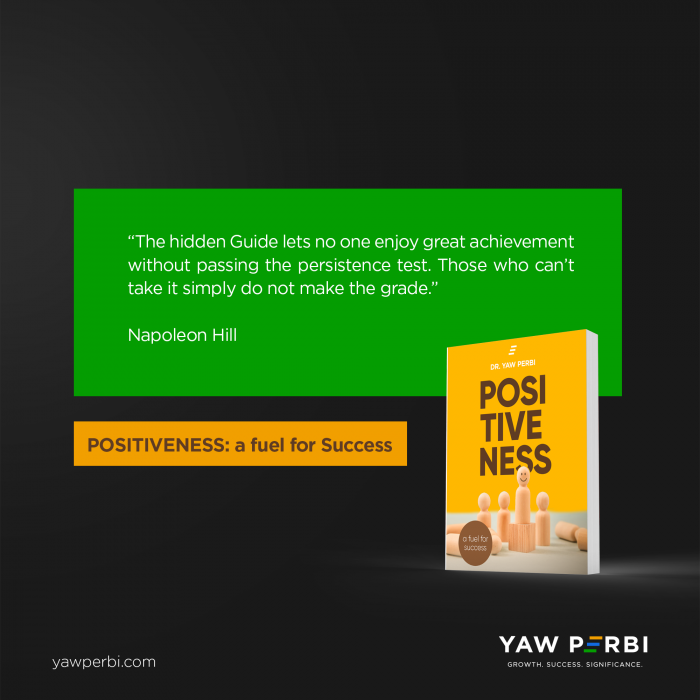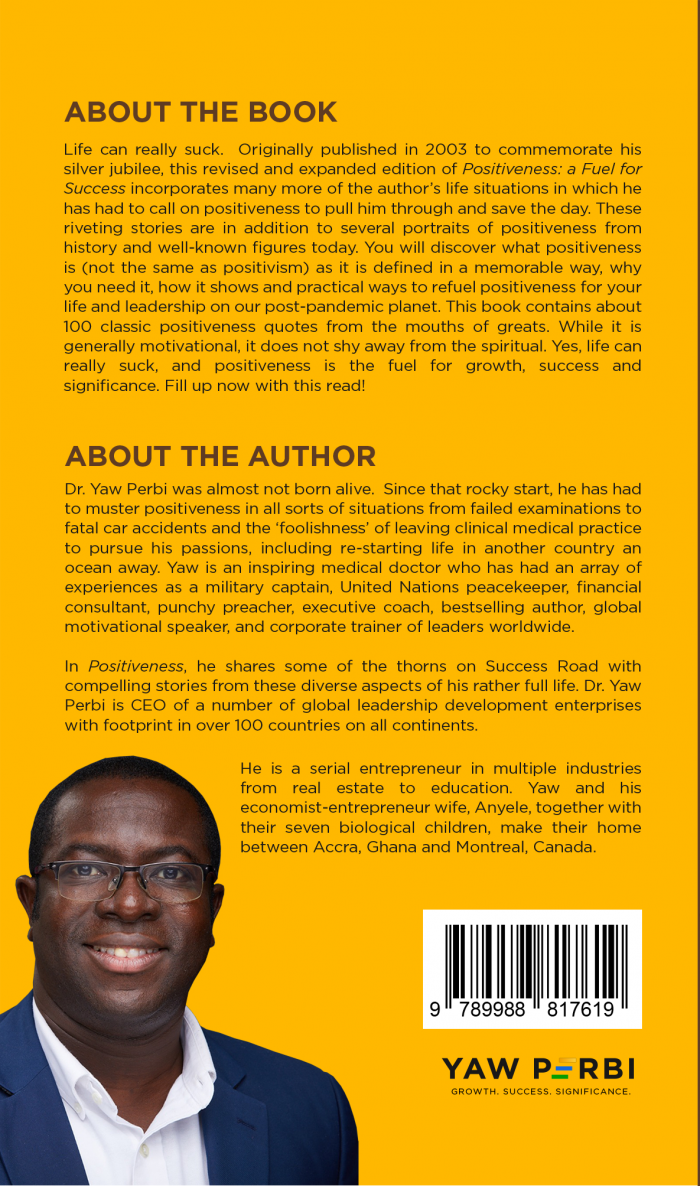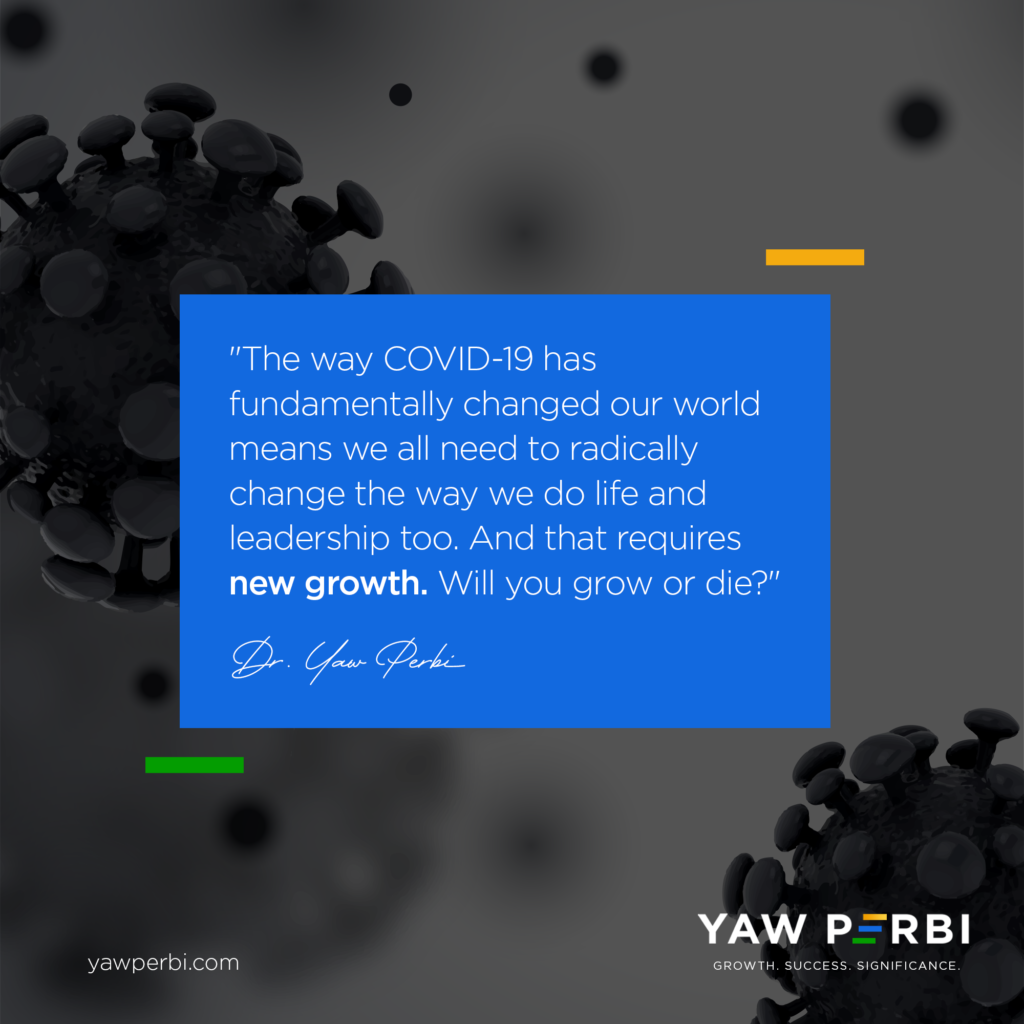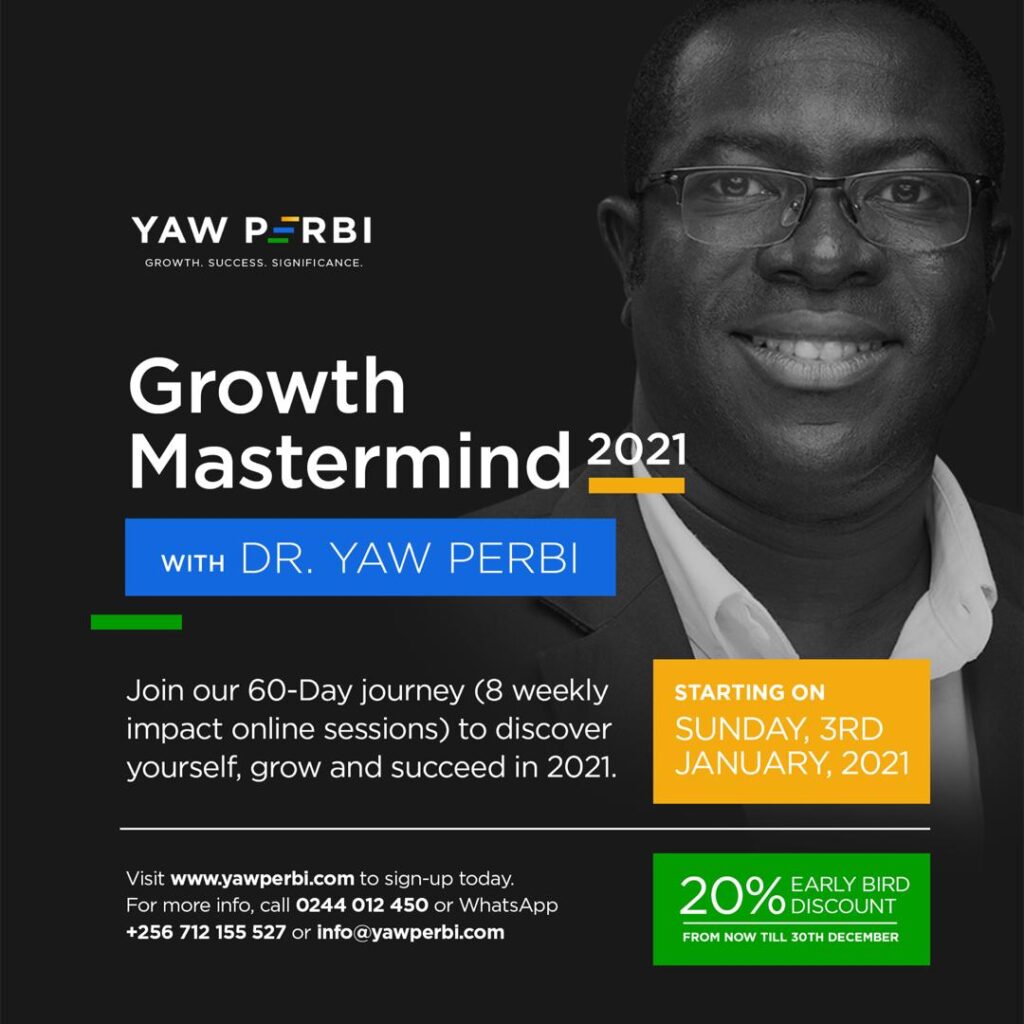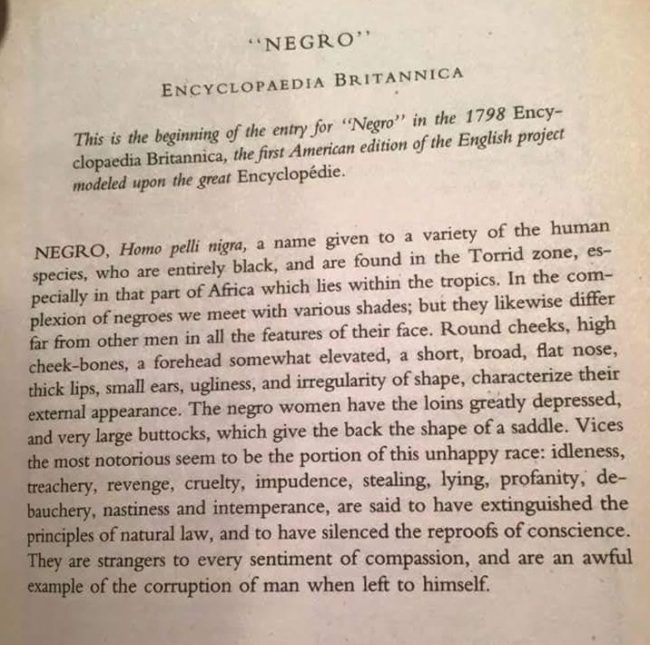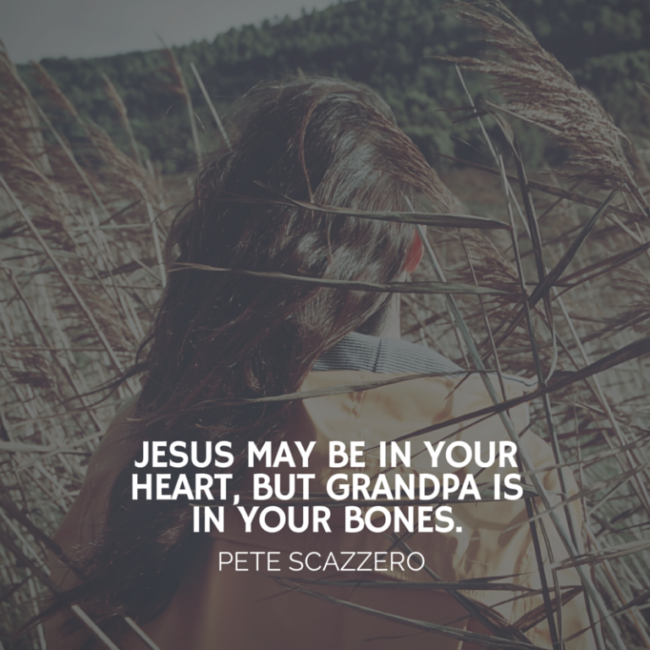
Perbi Executive Leadership Education (PELÉ) Gets New Chief of Staff: Introducing Patrick Kojo Amissah.
Perbi Executive Leadership Education (PELÉ) and allied Perbi establishments heartily welcome Mr. Patrick Kojo Amissah as our new Chief of Staff. Kojo Amissah is a versatile professional with experience in organisational leadership, team and operations management. He believes in striving for excellence and critically analysing problems with the goal of coming up with practicable, innovative solutions. He has worked in the educational, publishing and financial sectors.
Kojo’s previous work experience includes co-managing a start-up (Catalyst Learning Limited) and growing it into a sustainable firm. His responsibilities included structuring and establishing different roles and tasks, recruiting and training staff, establishing systems, managing finances, and planning and executing projects. For over three years he led in the development, printing and distribution of over five million copies of textbooks and workbooks to various schools across Ghana. He managed communications and relations with foreign printing firms including negotiating prices and planning the delivery of printed books.
We are convinced that the skills and knowledge gained from these experiences will enable him to quickly adapt to the demands of the Chief of Staff role at PELÉ and to exceptionally perform the outlined responsibilities. Mr. Amissah possesses good leadership and team management skills which he honed while serving as Team Leader, Curriculum Development and as Chief Operations Officer. Watch out for PELÉ’s online leadership courses to be launched by mid 2023.
Mr. Amissah developed important team building and conflict management strategies as he directly and indirectly managed over thirty individuals performing different roles. He also possesses good negotiation skills and valuable stakeholder management experience. At PELÉ, we believe these are important transferable skills that will aid his interactions with staff of Perbi Executive Leadership Education and affiliated organisations like Perbi Cubs, Kwiverr, The HuD Group, Send Africa, Adeshe Real Estate, ISMCanada, PAIS, Africa to the Rest, BCA Leadership, the Lausanne Movement etc. Kojo takes the baton from Ashesi cum University of Warwick alumna Araba Andoh who laid pioneering tracks for the role.
According to Kojo, “I am highly motivated to serve in the role because it provides the opportunity for me to put my unique mix of experience in leadership, operations management and publishing to use in the worthy cause of growing executives to make significant impact in society. I also believe that working directly with an accomplished leader and entrepreneur like Dr. Yaw Perbi is an unmissable opportunity to grow professionally.” Among Kojo’s first tasks will be helping to host the incoming BCA Leadership Made in Africa Leadership Conference, launching PELÉ’s avant-garde DeepLEAD online leadership course and providing operational support for both The HuD Group’s 20th anniversary activities and Kanéval by PerbiCubs/UNESCO Accra World Book Capital. In commemoration of the latter, Dr. Yaw Perbi seeks to (re)publish all his two dozen books.
We welcome Mr. Kojo Amissah at this inflexion point where YAW PERBI is transitioning to PELÉ (Perbi Executive Leadership Education) to maximize team potentials beyond the availability and capability of Dr. Yaw Perbi as an individual. PELÉ by YAW PERBI is an Executive Education firm that offers authentic and customized relationships and resources to C-Level executives to grow personally, succeed professionally and become significant societally. PELÉ’s vision is to see a flourishing global ecosystem of authentic leaders characterized by growth, success and significance.
Kojo wields a Bachelor’s degree from the University of Ghana and an MBA from Coventry University. He is a practising catholic. Akwaaba, Kojo. Bienvenue, Monsieur Amissah. Here’s to your own growth, success and significance. Together, let’s carpe diem and make a dent in the universe!

Confluence for Influence: Kanéval by Perbi Cubs Leverages UNESCO’s Accra World Book Capital 2023.
Exciting news! Perbi Cubs Library Services is teaming up with the United Nations Educational, Scientific and Cultural Organization (UNESCO) and the Ghana Book Development Council, among others, to celebrate Accra World Book Capital (AWBC ’23) as official partners. Accra, the capital city of Ghana, in West Africa, is the 23rd city in the world, and only the fourth in Africa, to have the honour of this title which UNESCO initiated in 2001 to promote literacy globally. This is akin to a literacy World Cup title, only it is bestowed annually.
The World Book Capital is an initiative of UNESCO which recognizes cities for promoting books and fostering reading for a year, starting on April 23, World Book and Copyright Day. UNESCO adopted the 31 C/Resolution 29, in 2001, establishing the World Book Capital (WBC) programme. Cities designated as UNESCO World Book Capital pledge to carry out activities with the aim of encouraging a culture of reading and diffusing the values of literacy, lifelong learning, copyright, and freedom of expression in all ages and population groups, both within and beyond national borders. The first city to be awarded was Spain in 2001 and Accra’s turn is sandwiched between Guadalajara, Mexico (2022) and Strasbourg, France (2024).
The UNESCO World Book Capital Advisory Committee, which evaluates bids to win the title, comprises representatives of the International Publishers Association (IPA), the International Federation of Library Associations (IFLA), the International Authors Forum (IAF) and UNESCO. Past capitals include Madrid (2001), Alexandria (2002), New Delhi (2003), Anvers (2004), Montreal (2005), Turin (2006), Bogota (2007), Amsterdam (2008), Beirut (2009), Ljubljana (2010), Buenos Aires (2011), Erevan (2012), Bangkok (2013), Port Harcourt (2014), Incheon (2015), Wroclaw (2016), Conakry (2017), Athens (2018), Sharjah, (2019), Kuala Lumpur (2020) and Tbilisi (2021).
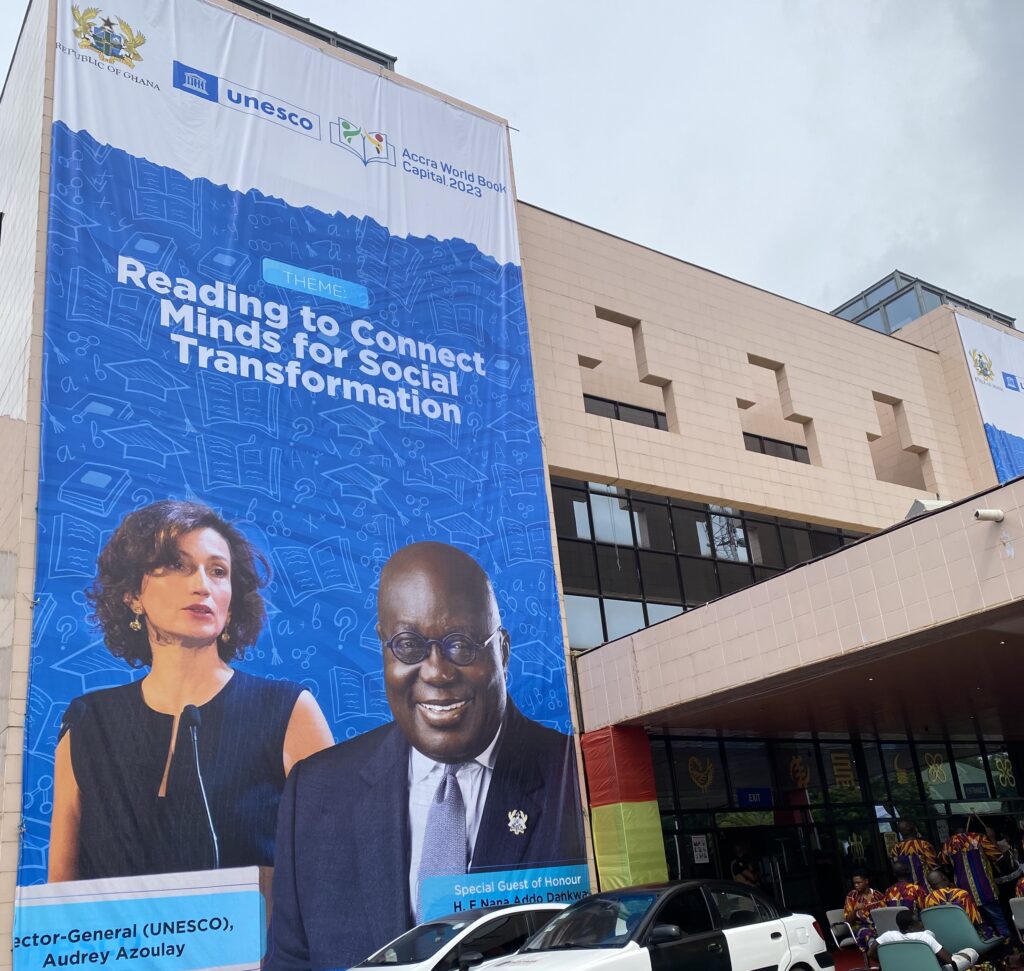
The grand opening ceremony of Accra World Book Capital at the Accra International Centre by the President of the Republic of Ghana
THE GHANA JOURNEY
Accra’s first attempt to win the 2019 World Book Capital title, after the idea was mooted in 2016 and working towards that, failed. Accra relaunched the bid in April 2021 and won it. The executive board of UNESCO, at its 215th session in Paris, France, on September 22, 2021, named Accra the World Book Capital 2023, following evaluation by the World Book Capital Advisory Committee. This was no mean achievement for the ten-member bidding team representing the Accra Metropolitan Assembly, Ghana Commission for UNESCO, Ghana Library Association, Ghana Publishers Association, Complementary Education Agency (formerly Non-Formal Education Division), Ghana Association of Writers, and the Ministry of Foreign Affairs and Regional Integration and chaired by Mrs Ernesticia Lartey Asuinura, the Executive Director of the Ghana Book Development Council (GBDC). Several internal staff of GBDC were behind this successful bid and must be applauded.
According to UNESCO, “the city of Accra was selected for its strong focus on young people and their potential to contribute to the culture and wealth of Ghana. Accra’s proposed programme seeks to use the power of books to engage these young people, as an effective way of skilling up the next generation.” Earlier this year, on April 11, the Minister of Education of Ghana, Dr. Yaw Adutwum, held a press launch of AWBC’23 at which Perbi Cubs was represented by the Founder and CEO, Mrs. Anyele Perbi. He explained that Accra was selected ahead of other cities because the Education Ministry’s programmatic focus was on young people and their ability to contribute to the culture and wealth of Ghana through the power of reading. “Research shows that reading improves the learning outcomes of students in schools,’ said the Minister. “That’s why in certain schools around the world, they’ve implemented and employed the ‘Drop Everything And Read’ – ‘DEAR’. So if it’s 15 minutes, 20 minutes a day, children are made to stop everything and read,” he illustrated.
Dr. Yaw Perbi, Global CEO of The HuD Group and Co-Founder of Perbi Cubs, and Mrs. Anyele Perbi , Founder and CEO of Perbi Cubs, were invited and did attend the grand opening of AWBC ’23 by the President of the Republic of Ghana, Nana Addo Dankwa Akufo-Addo, and the Director-General of UNESCO, Madam Audrey Azoulay Ayoub, at the Accra International Conference Centre. The theme for the occasion was ‘Reading to connect minds for Social Transformation’. It was encouraging interacting with school children as well as top academics at the Perbi Cubs booth, including members of the Ghana Academy of Arts and Sciences. Visiting the exhibition booths of other players in the literacy space was also invigorating but nothing beat the joy of seeing the attending school children flock to the Perbi Cubs stand to sample for a few minutes the thousands of books on their online platform.

Several groups of school children practicalized the whole point of AWBC by doing actual reading at the launch
Under the theme ‘Reading to connect minds for social transformation’ the programmes planned for the title year will focus on particularly the youth and vulnerable groups in Accra (and Ghana at large) such as children, underemployed women, head-porters (kayayei) and persons living with disability, to equip them with literacy and employable skills, while promoting the rich Ghanaian cultural heritage and the book industry in Ghana.
THE PERBI JOURNEY
Both Yaw and Anyele Perbi (née Ampa-Sowa) come from homes full of books. In fact, they got to know each other as children of professors at the University of Ghana campus. Anyele’s dad was an Economics lecturer and Yaw’s mum, a history lecturer. In their growing up years Yaw’s own dad, being a long-time member of the board of Challenge Bookshop, would receive loads of books every year, feeding their home library fat.
Tracing the history of books even further, Yaw’s maternal grandfather was not only an author and professor of African Studies and Ethnomusicology at the same university, but also together with writer and educator Dr. Efua Sutherland organized the first international book fair in Ghana in the early 1970s and proceeded to come together to found Afram Publications a couple of years later, incorporating it in February 1973. Emeritus Professor J.H. Kwabena Nketia was his name.
The Perbi household buzzed with books and moments like when the floating bookshops, the MV Doulos or Logos ships, would berth at the Tema Harbour were fun galore. Meanwhile, Yaw did not like reading as much as Anyele in their early years on the Legon campus. Anyele LOVED reading to the point that the rate of buying books for her and her two brothers was threatening to bankrupt her parents. When she was missing from the house you could be sure she was immersed in a book somewhere!
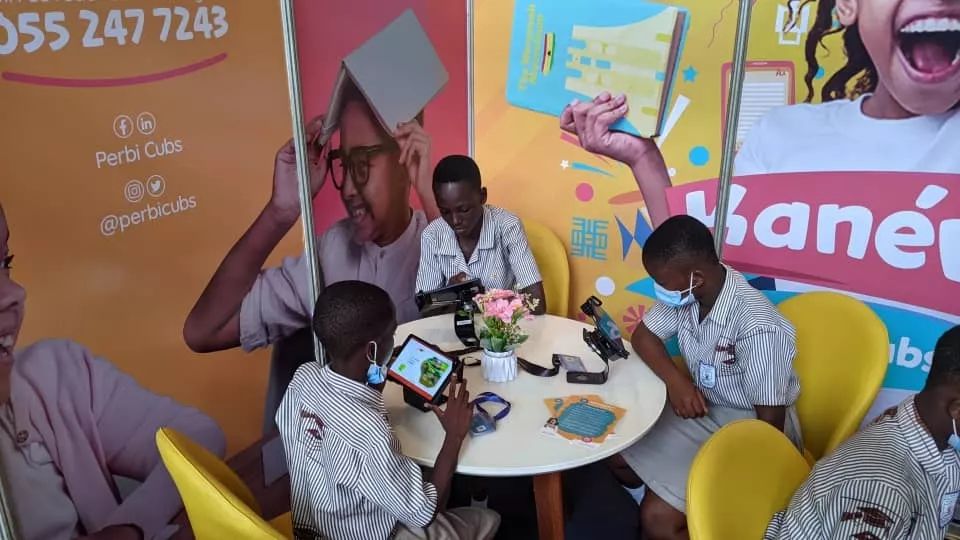
At the intersection of age old reading and new technologies stands Perbi Cubs’ online digital reading platform and offerings
Two jerking statements changed Yaw’s attitude towards books. The first was, “If you want to hide something from a Black people, put it in the book.” You may read the full story here. Fascinatingly, by the age of twenty-three, Yaw would write and publish his first book, What Every Fresher Should Know about University, and as an internationally-recognized author of some twenty books and several book chapters, journal articles etc. now, as they say, the rest is history. Today, one of his punchy books called Read! is subtitled: “You are ‘illiterate’ if you can read but don’t.” Dr. Perbi’s 2015 Thinking Outside the Window was even an Amazon bestseller in its category. His latest book, co-authored with a Kenyan and published in March 2023, is entitled Africa to the Rest. In it, Yaw stresses the need for Africans not only to read but also to write. “Until the lion learns to write,” he reminds us, quoting an old African wise saying, “every tale of the hunt will glorify the hunter.”
When Yaw founded The HuD Group in 2003, one of its first divisions was a library called The Mine (it still runs at the Staff Village of the University of Ghana). So for at least two decades now, Dr. Perbi has been a fierce reading campaigner. And now in tandem with the erudite Anyele, he likes to say “my wife and I have stepped up by stepping down.” What he means by that is, they’ve enhanced their reading campaign (stepped up) but decided to go further down to the age where humans are most pliable: childhood (stepping down). And they began with their our own seven children in the French city of Montreal, Canada which happens to have been the UNESCO World Book Capital in 2005, four years before they would dwell there as a family for the next dozen years. Their own children’s love for reading, the generous 40 books per person supply of the Pierrefonds municipal library across the street from their West Island home and an imminent eight-month visit to Ghana that threatened to stifle this Perbi reading culture combined to birth the Perbi Cubs Library Services. You may find the story and philosophy behind Perbi Cubs here.
AND NOW, KANÉVAL
According to Perbi Cubs CEO, “We are excited to inform you that Perbi Cubs, in partnership with UNESCO Accra World Book Capital 2023, will be organizing a fantastic year-long program. Watch out for Kanéval as it moves round throughout the year, to your school or community. Stay tuned on the various Perbi Cubs social media handles like Facebook, Twitter, LinkedIn and Instagram for more updates.” Kanéval by Perbi Cubs, a season of fun, inspiration, and BOOKS, is launching in Accra on May 11, 2023.
As long as reading remains a chore, we’ll have a problem promoting it. But who doesn’t love a good festival, a carnival? What if we could think outside the box and bring together the idea of a traveling amusement show with merrymaking sideshows, rides, etc. with reading? What if face-painting or getting on a swing was a reward for reading a book? These are some of the disruptive ideas that incubated and eventually hatched Kanéval. The idea of Perbi Cubs in general and KANÉVAL in particular, is to bring FUN to reading while strongly brandishing the connection between reading and success in life.
In the spirit of innovation and creativity, Perbi Cubs values, the coined word Kanéval was inspired by the word for read in Ga, the language of the Accra people, Kané. So combining ‘Kané’ with the English word ‘carnival,’ here we are! There will be lots of fun, reading and other educational activities. Perbi Cubs is grateful to several Ghanaian influencers like Nana Aba Anamoah (media personality and General Manager of GHOne TV and Starr FM), Bernard Avle (Citi Breakfast Show host and General Manager of Citi FM), Kafui Dei (author, speaker and GTV Breakfast host), Portia Gabor (TV3 hostess and Ghana Journalist Association’s reigning Journalist of the Year), Gwen Addo (entrepreneur, author and CEO, The Hair Senta), Giovani Caleb (media personality, radio and TV), Gifty Anti (author, media personality, celebrated journalist) and others who are synergizing with them to take the culture of reading to the next level to transform the fortunes of Ghana and Africa.
Perbi Cubs’ Kanéval is scheduled to take off on 11th May, 2023 at Alpha Beta Education Centres and then to all their partner schools and other communities, particularly deprived ones badly needing a literacy intervention. Kanéval is not just for our Cubs but all our stakeholders including you. There are many activities you can join in with exciting prizes. Kanéval awaits you for a Kanévalistic experience. Kanéval – Reading is fun!!! The amazing part is that in collaboration with various partners, Perbi Cubs is offering huge discounts on their subscriptions so that every Cub in their partner schools can read this year!
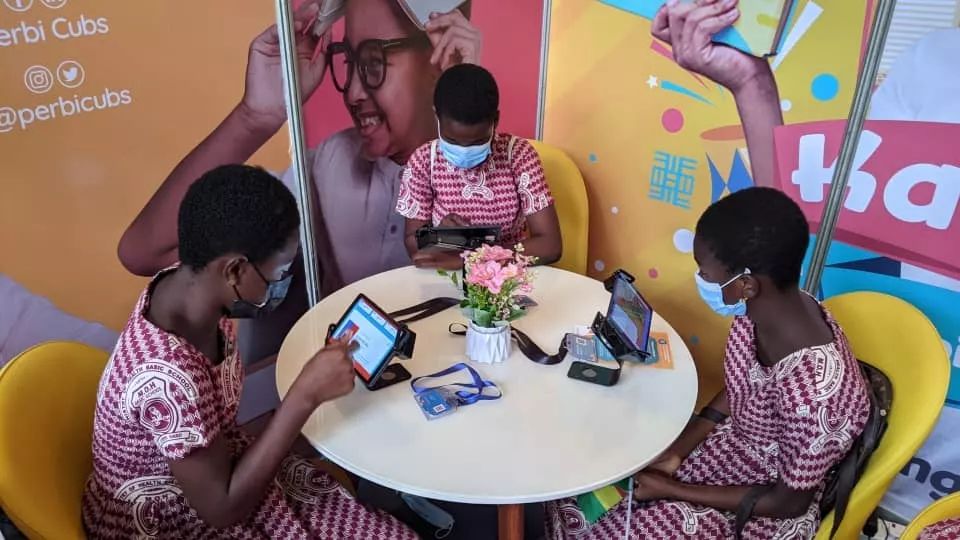
Perbi Cubs has served about 10,000 children so far and is set to scale that in this AWBC year to 100,000
WE HAVE A PROBLEM
Kanéval is fun about something serious. And Ghana in particular has a problem that isn’t funny. As a society we do not value reading enough. If research has proven that the love for reading is a stronger indicator of a child’s success in school and prosperity in life than even their parents’ socioeconomic status or level of education, then we should be worried that only 6% of Ghanaian children at classes two and three can read and understand what they read (UNESCO 2021). Meanwhile the World Book Capital Network (WBCN) acknowledges and reminds us of the power of books and reading as cornerstones to more inclusive, peaceful and sustainable societies. Thus as they rightly put it at Perbi Cubs, “Success is just a book away,” be it personal or national.
Let this be the year we all got dead serious about raising the tide (the general level of literacy) that lifts all the other boats, all sectors and subjects, including STEM. O that the confluence for influence between Kanéval by Perbi Cubs, influencers like those cited above and all other players in the UNESCO’s Accra World Book Capital 2023 space will do the trick. Let’s get on with this serious business, having fun along the way. Kanéval it is!

The Way Up is Down.
At Easter, I threw a challenge to the leaders in my network: lay down yourself for someone else’s uplifting. This challenge was triggered by inspiration I received when I had just returned from a college graduation the week before Holy Week. Although it had been a season of graduation ceremonies in Ghana across many tertiary institutions, this was a special one, a very special one.
About six years ago, our family travelled to Ghana from Canada on furlough. We had planned to stay the entire period at my parents-in-love’s residence in Accra. Being a reasonably big-sized big family (the children weren’t even seven yet!) we obviously needed some domestic assistance. We were glad to welcome a promising young lady, Benedicta, as our new house help after a couple of failed trials.
As we lived with her and observed her initiative, diligence, smartness, humility, kindness and care we took an extra interest in what her ultimate dream was. She had the potential to be like any one of us high income, high impact professionals and not necessarily having to be confined to a vocation of domestic assistance her entire life. We found out about her high school final grades and thought they could be improved. And so we (my wife and I, parents-in-love and other family members) decided to invest in her, everything from extra classes through re-sit examinations. Even when she was finally given a shot at college my mother-in-law would get her books and do mock interviews with her to prepare for the entrance interviews. Long story short, she made it into nursing college.Now, that is the graduation we went for that day.
Today, Benedicta is a nurse. She graduated from the Nurses & Midwives Training College in Teshie, Accra, Ghana. From house help to nurse; and that is what brought me to the Easter challenge because at Easter, we see the ultimate leader Himself laying down His life for the people He saw value in. At the risk of sounding holier-than-though, the previous family she left to serve ours was just about to invest in her to be a fried pork seller by the street.
JOHANNINE CHALLENGE
Everybody knows John 3:16: “For God so loved the world that He gave His one and only Son, that whoever believes in Him shall not perish but have eternal life.” But what a lot of people who are not schooled in Trinitarian theology don’t realize is that this scripture is basically saying that God so loved the world—God so saw value in you and me—that he gave Himself for us, because God is Father-Son-Spirit. The ultimate leader laid down Himself for our uplifting.
PAULINE CHALLENGE
This giving of Himself or laying down His life for us is spoken of by St. Paul’s to the Church in Philippi in such humble and humbling terms. He begins in Philippians 2:5 by exhorting that “your attitude should be the same as that of Christ Jesus.” Let’s take Eugene Peterson’s contemporary version:
5-8 Think of yourselves the way Christ Jesus thought of himself. He had equal status with God but didn’t think so much of himself that he had to cling to the advantages of that status no matter what. Not at all. When the time came, he set aside the privileges of deity and took on the status of a slave, became human! Having become human, he stayed human. It was an incredibly humbling process. He didn’t claim special privileges. Instead, he lived a selfless, obedient life and then died a selfless, obedient death—and the worst kind of death at that—a crucifixion.” [1]
Wow! God becoming a man was not just humbling, it was humiliating. Yet even when formed and found in appearance of a human, he could’ve been a very proud man but no! He was down-to-earth and mingled with tax collectors and ‘sinners’. In fact, it was on the night he was betrayed–during Holy Week–that He washed his own disciples’ dirty and stinky feet and wiped them with a towel around his waist.
The way up is down, for because of this humble attitude and action, “God lifted him high and honored him far beyond anyone or anything, ever, so that all created beings in heaven and on earth—even those long ago dead and buried—will bow in worship before this Jesus Christ, and call out in praise that he is the Master of all, to the glorious honor of God the Father.” [2] Even those who are not voluntarily honoring Jesus now will bow one day, compelled. All shall bow to the one who first bowed the lowest and is now raised the highest.
YOUR CHALLENGE
As a leader, I want to challenge you to choose one person, choose one thing to do this month (we’re still in the month of Easter) that involves laying down your preference, time, or money, sacrificing something, dying a little so that someone can live, graduate, have a better life etc. I challenge you to do that because that is the essence of ultimate leadership. Leadership is not about us, it is about those who take inspiration, follow, and learn from us who we get to empower and guide; those around us.
It’s sad to see so many places in the world, especially in Africa, where government official think it is all about them. Unfortunately, even in the church there are a myriad instances where pastors are doing extremely well socioeconomically and there are congregants who are not faring well, at all. Sometimes these leaders are literally fleecing the people, milking them dry till they bleed. That’s not leadership at all, and certainly not servant leadership. Leadership is laying down our lives, laying down our gifts so that others will be blessed. It is going down to pick the downtrodden and lifting them up.
Cecelia Chan poignantly put it this way: “Instead of laying a red carpet for yourself to walk on, lay a bridge and let the young people walk over to you.” This is my challenge to you, at Easter and beyond: lay down yourself for someone else’s uplifting. God bless and honour you too as you learn to lead like Jesus.
References
[1] Philippians 2:5-8, The Message
[2] Philippians 2:9-11, The Message
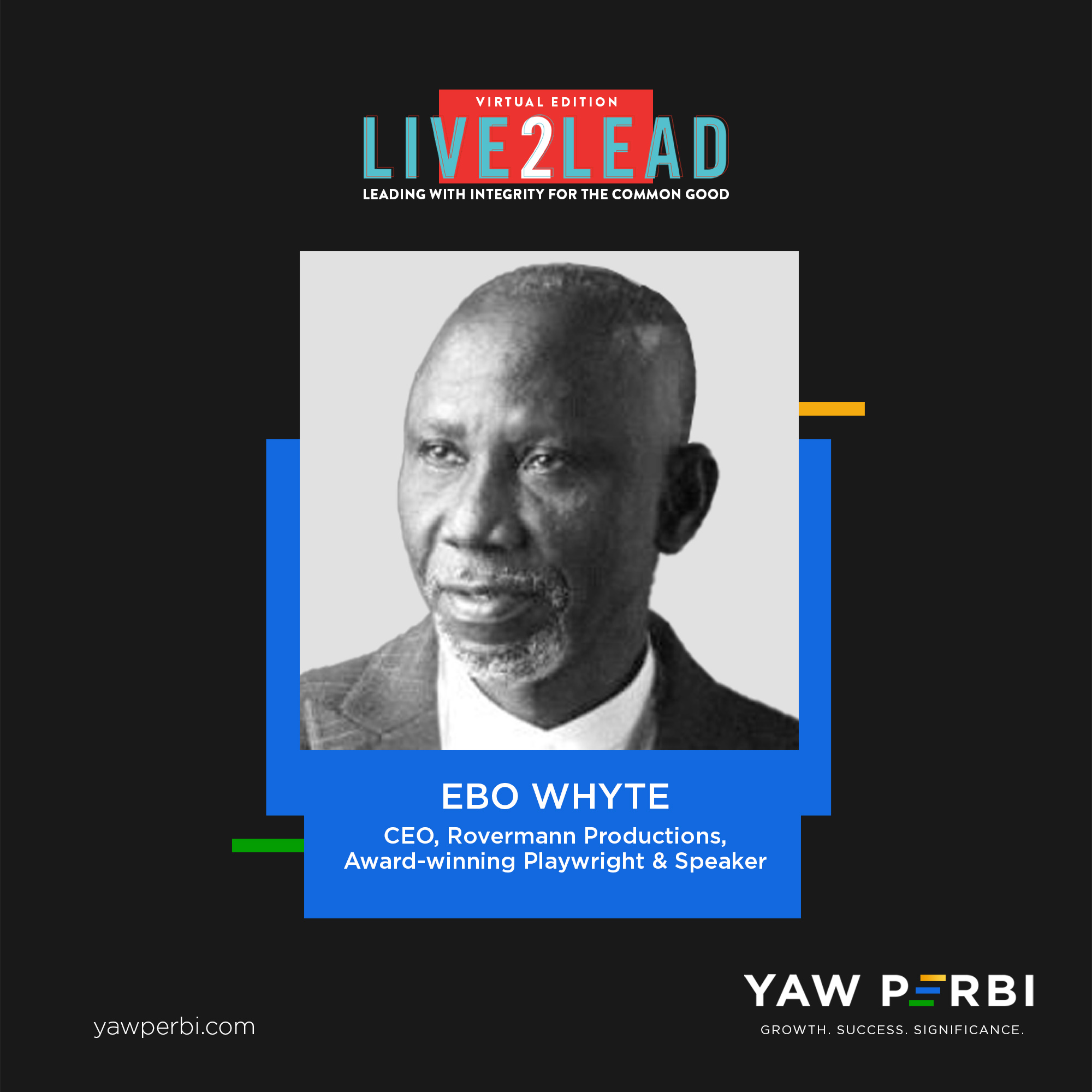
Meet Uncle Ebo, the People’s Uncle.
Everyone calls him “Uncle” without even thinking twice about it. Whether young enough to be their son or old enough to be their grandpa, “Uncle” is everyone’s uncle. A voice of reason, counsel in season, James Ebo Whyte, affectionately known nationwide as “Uncle Ebo” is the people’s uncle, hands down.
Mr. James Ebo Whyte is the CEO, heart and brain behind Roverman Productions. He is nationally acknowledged as an accomplished, award-winning playwright and highly sought-after motivational speaker. James Ebo Whyte constantly challenges Ghanaians to think more about the world they live in and the contribution they make to it. Just the day before the October 7, 2022 Live2Lead conference at which he was speaking, he unveiled to his drama troupe his 51st play in fourteen years! A hearty congratulations to the prolific playwright.
INTEGRITY IN THE ARTS & ENTERTAINMENT INDUSTRY
At Live2Lead 2022, Uncle Ebo was the only gentleman among three distinguished leading ladies from the corporate and entrepreneurship spaces as well as the public sector. Their first job was to respond to the submissions on “Leading with Integrity for the Common Good” made in the earlier hour by Patrick Awuah, founder and president of Ashesi University. Uncle Ebo held our attention as he raised issues of integrity in the arts & entertainment segment of Ghanaian society that he had with intentionality decided to counter, like giving kickbacks from corporate sponsorship. He uttered with conviction, “there are sponsorships we know we’ll never get for our plays because of this.” And he’s fine with it, as he knows that integrity comes at a cost.
One of the most amazing feats of Roverman Productions has been putting up a new play every quarter for the last decade-and-a-half and resolving to always start on time, also a matter of integrity. In fact, one of the participants at Live2Lead, a corporate governance expert, interjected that one reason she chooses to go and see Ebo Whyte’s plays is that she can guarantee they would commence on time. Again, Roverman has gone against the tide by ensuring pristine toilet facilities at their play venues and three levels of security at events to ensure patrons have a heavenly experience and leave with no bitter taste in their mouths. To the people’s uncle, excellence in these areas is a matter of integrity.
OF TEENAGE FOLLY AND GAMBLING
We intentionally wanted to leave the Live2Lead conferees on a note of hope, especially hope in Ghana, and Uncle Ebo did not disappoint. While admitting we have mega challenges in the nation he reminds us that we’ve not only been in worse times but also that in the annals of nation building globally, at 60 years Ghana is only a teenager. The national happenings that leave us in consternation are akin to teenage tantrums and this too shall pass. We do have quite a degree of national folly though, which we need to be cured of, he confesses.
Uncle Ebo’s belief in Ghana is so solid that his parting words were the following: “Whoever bets against Ghana will lose.” For a full buffet of this scintillating conversation look out for a recording of the hitherto livestreamed video (currently only available to paid participants) or invite Live2Lead to rebroadcast in your context (company, community, church etc). You don’t want to miss Live2Lead 2023 on October 6, next year, Deo volonte. Pinned on the first Friday of each October, National Leader Day after National Leader Day, building a leader at a time and one centre of excellence at a time, we shall surely get to the Ghana we want. And who knows? Perhaps sooner than other nations have.
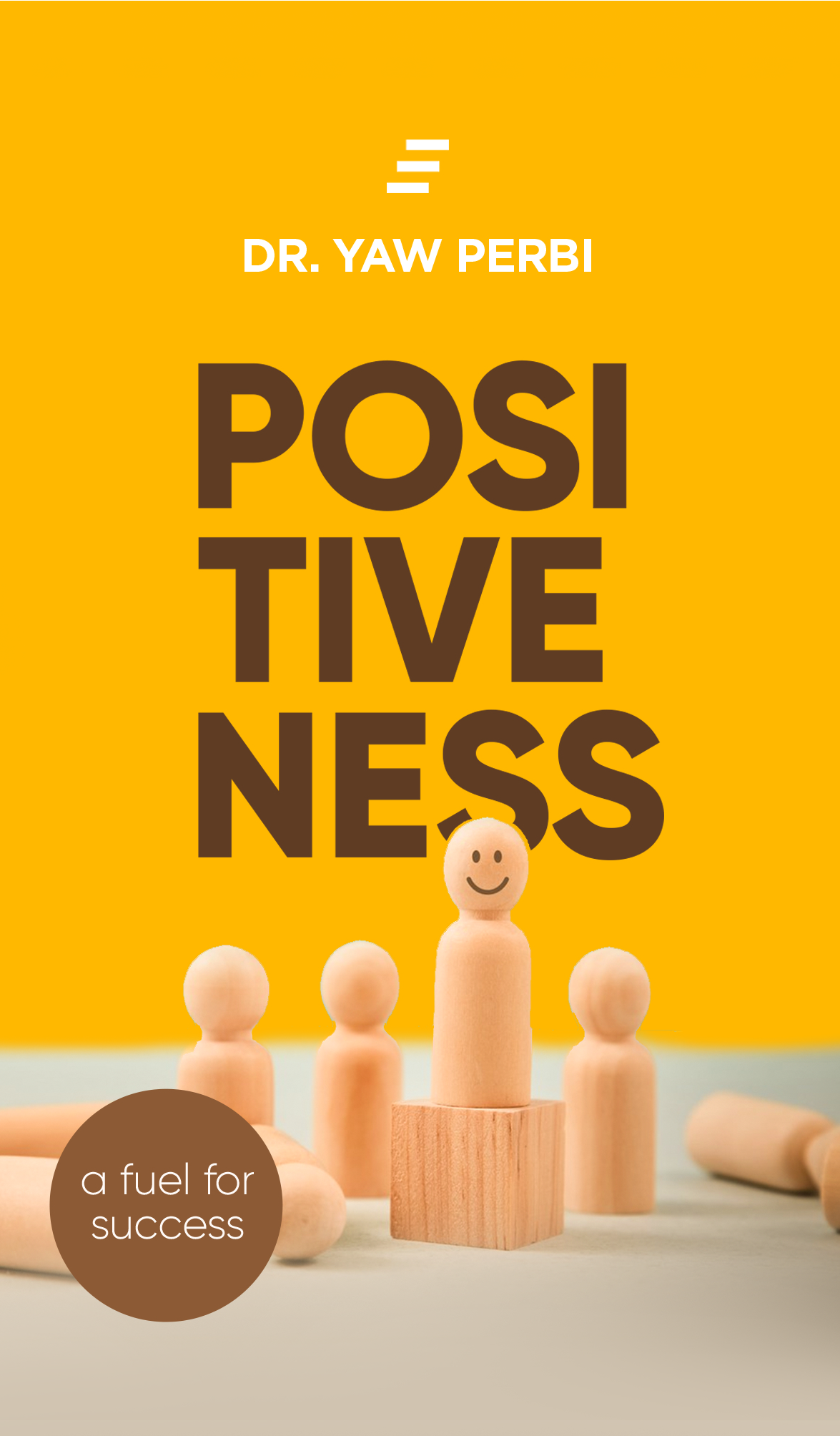
PANDEMIC OR NO PANDEMIC, POSITIVENESS IS STILL A FUEL FOR SUCCESS
The following is a snap peak of the preface to the third edition of Dr. Yaw Perbi’s third book, ‘Positiveness: a fuel for success’, first published in 2003 to commemorate his silver jubilee.
It took a global pandemic to make this third edition of Positiveness: A Fuel for Success, possible. I have been trying to republish this book for nearly a decade now. The revised manuscript was done in 2012, and I had nearly completed the back-and-forth with a publishing company. All was ready to go, or so I thought. Then life happened and I put this on the backburner. Until now. It took the lockdowns of the Coronavirus pandemic of 2020 to get this going again.
I have changed a lot since I turned 25 and first launched this book and so have many things too. We didn’t even have smartphones back then, and the internet was still a novelty. But some things have remained the same. After thousands of copies sold and many countries reached, “through all the changing scenes of life, in trouble and joy,” what hasn’t changed is the fact that positiveness is still fuel for success.
In the past two decades, I have lived and worked for a year or more in three countries on two continents. In doing so, I have needed a whole lot of positiveness, especially in those times when I was geographically separated from my family. I have formally had various occupations and preoccupations ranging from being a medical doctor in Ghana, a military captain with the United Nations in Cote d’Ivoire, a leadership consultant and speaker around the world, pastor of a Chinese congregation in the French city of Montreal, a financial security advisor and investment consultant, to being president of a couple of Canadian and global charities. Positiveness is still fuel for success no matter the field of endeavour.
You see, this book was only my third book and, back in 2003, I wrote and self-published it with a white cover and silver inscriptions to celebrate my twenty-fifth birthday (silver jubilee). At the time, I was a struggling medical student in Ghana attempting to do ‘what Napoleon couldn’t do’. I was trying to straddle the world of medicine and human development. In May 2003, together with a group of friends, while still in med school, I founded The HuD Group to inspire and empower young people to reach their full potential. Now I am a full-fledged medical doctor who has hung up his stethoscope— after four years of clinical practice—to focus on human development, especially holistic leadership development, because I sincerely believe, like my mentor John C. Maxwell, that “everything rises and falls on leadership.”
The HuD Group began in Ghana but, at the time of writing this, I am feverishly coordinating our global operations in two dozen countries on all continents of the world and currently domiciled in Montreal, Canada. If I thought I needed a daily prescription of positiveness back in 2003, then I might need a thrice daily prescription now. The two-year battle with the Canada Revenue Agency alone to get charitable status for The HuD Group warrants a book on its own. I’ll save that for another day, but it took positiveness to fuel my success.
When I was much younger and naïve, I dreamed of working with the United Nations. And unlike many for whom that is still a dream, I achieved it. I did that, for a year, in La Cote d’Ivoire. Even while already enjoying that success, I still needed positiveness as fuel when I got car-wrecked on July 21, 2008 and lost two of the military colleagues I was travelling with. It was positiveness that got me back on the road to recovery. My commanding officer, out of rare soldier-sympathy, wanted me to return home (to Accra, Ghana) and recuperate but cheers to positiveness, I was convinced to stay put and serve with grace. I prevailed. Positiveness prevailed.
So yes, life has changed—a whole lot— and so have I since 2003. Now married to my dear wife, Anyele, and a father to seven amazing children, I certainly have a broader and deeper perspective on life today. But if anything, these changes have only affirmed and confirmed the principles that were penned in this book nearly two decades ago. Positiveness is fuel for growth, success, and significance in any and every endeavour, and at whatever age and stage in life, that hasn’t changed.

From One Legendary Leader in the Evening to Another One in the Morning–a Tribute to Archbishop Desmond Tutu

The beloved late Desmond Tutu (photo: Yaw Perbi does not own the rights to the picture and owner is unknown).
I was emailed this incredible tribute by a mentor of mine in the Lausanne Movement, Dr. Michael Cassidy, to his late friend Archbishop Desmond Tutu, that I just had to share as a student of leadership. What impresses you most? May many Cassidies and Tutus be raised in our generation!
Tribute to Archbishop Desmond Tutu
from
Michael Cassidy
Founder, African Enterprise
Honorary Chair, The Lausanne Movement
Archbishop Desmond Tutu, one of South Africa’s greatest ever luminaries, both ecclesiastical & national, has gone to be with His Lord. People from every race, sector & background will mourn his passing, because he was a man for all who stood without fear or favour for the human rights of all.
Perhaps it is as an almost unequalled African champion for human rights that he will be most fondly & universally remembered. And it was for this that he justly became a Nobel Laureate.
In South Africa his immensely courageous fight against Apartheid earned him the fearsome opprobrium of the National Party Government, the settled hostility of most whites, but the thankful adoration of all people of colour, as well as more liberal whites. In fact, from the church, his voice during those dread years, was by far the most audible, & his persona by far the most visible. This audibility & visibility constituted a true achievement of note & contributed powerfully to the final fall of Apartheid.
As far as we were concerned in African Enterprise, Desmond was a friend to our work & contributed powerfully to conferences we organized or helped organize such as SACLA (South African Christian Leadership Assembly), the NIR (National Initiative for Reconciliation), & The Rustenburg Conference which represented the whole church spectrum & spoke to the whole range of political leadership from far left to far right.
At a personal level I also counted Desmond a good friend. He commended numbers of my books, including my recent Memoirs, & wrote the Foreword to my book The Politics of Love. We also shared in significant ministry together in African Enterprise’s city-wide mission to Kigali, Rwanda, a year after the genocide. That was very moving. I especially remember ministering with him in terrifying cells of pitifully jammed together prisoners. And then being with him as he collapsed in tears in one church filled with skeletal remains of murdered victims. There I saw his profound compassion poured out. Even as we tried to hold him up. Such shared moments one can never forget, culminating in our sharing the evangelistic preaching to a packed stadium in our final service.
And all this Desmond could do in spite of the fact that we had strong theological differences on certain issues such as Universalism & Gay Marriage. But he never allowed those to damage our friendship. And neither did I.
Thankfully in our recently produced documentary, The Threatened Miracle of South Africa’s Democracy, Desmond features strongly, both during the Apartheid years, but even afterwards when he severely scolded the ANC of Zuma’s time saying, “I’m warning you; I’m WARNING you; you are a disgrace!” No one else had that truly prophetic courage, credibility & ability to speak to all sides, all the time, AND be heard!
Yes, we will miss him… “the Arch”, as he was affectionately known, even by the media. But his legacy of prophetic witness will live on wherever South Africa’s story is told, & wherever racial justice & the Human Rights struggle are in purview.
To his dear, always supportive wife Leah, to his family, to his ministry colleagues, especially in the Anglican Church, we in African Enterprise world-wide extend our deepest sympathies, & assurances of heart-felt prayers at this time.
Dear Desmond — Beloved Arch — thank you for blessing us with your life. Au revoir. We will see you in the Morning.
Michael Cassidy
Founder of African Enterprise
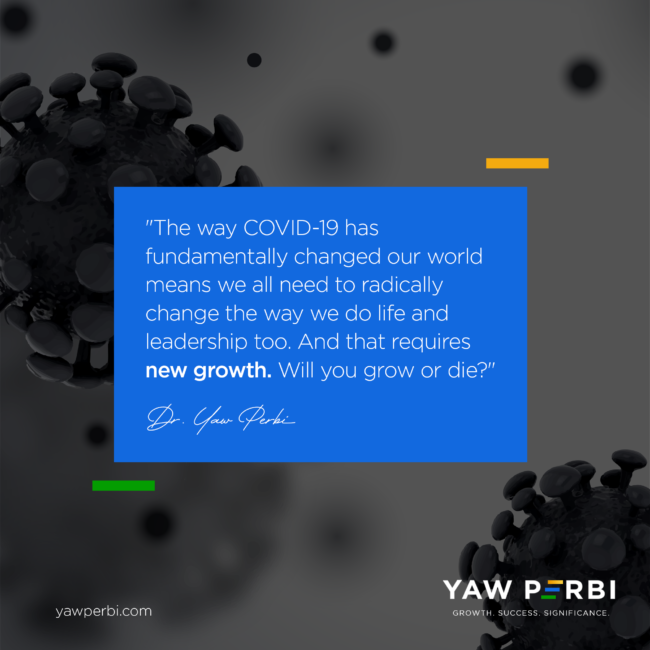
Festival of Nine Lessons & Corona
“The novel coronavirus is not just something for leaders to ”get through” for a few days or weeks. Instead, we need to treat Covid-19 as an economic and cultural blizzard, winter, and beginning of a “little ice age”—a once-in-a-lifetime change that is likely to affect our lives and organizations for years,” says Andy Crouch et al. I concur.
Just before Christmas 2020 my lawyer-banker friend and fellow John Maxwell Certified Trainer/Coach, Samuel Anim Esq., asked that I join him do an autopsy of the pandemic year 2020 live on Facebook/Youtube to draw leadership lessons. I was honoured and humbled. Honoured because it is a privilege to offer thought leadership and there is a myriad of leadership experts to choose from. I was humbled because not only do I not know all the lessons from Covid-19, I am still evaluating and learning from what I would perhaps call “the strangest year of my life.”
Nevertheless I managed to throw a few of my reflections together and gave it a funny title. Since around that time of the year there is the traditional Festival of Nine Lessons & Carols I thought of making this a Festival of Nine Lessons & Corona. Certainly there are more than nine leadership lessons from this Coronavirus pandemic year but here are some:
1. EMBRACE PARADOX
Perhaps no one and nothing captures the paradox of 2020 like Charles Dickens and his classic phrase, “It was the best of times, it was the worst of times” (from A Tale of Two Cities). This same 2020 year, over 1.67 million have died and 42.6 million have recovered. You may have lost someone to COVID-19 but you are alive. I’ve been stuck at home but I’ve had the longest unbroken quality bonding time with my family ever! We lost our family’s physical library services business but gained online business five times the physical capacity. Whole old industries, like aviation, have been decimated but whole new industries have emerged and are booming like Zoom. 2020 has been catastrophic yet catalytic.
Welcome to leadership. Embrace paradox. Think of the paradox of a servant leader, as a prime example of leadership paradox. True leadership is almost always straddling two seemingly opposing worlds, something Bob Fryling describes as “the leadership ellipse” because an ellipse “is defined by two distinctly different focal points that are of equal importance. One point is not inferior to the other, and both are needed if there is to be an ellipse.” I previously blogged about this in more detail here.
“It was the best of times, it was the worst of times, it was the age of wisdom, it was the age of foolishness, it was the epoch of belief, it was the epoch of incredulity, it was the season of light, it was the season of darkness, it was the spring of hope, it was the winter of despair.” ― Charles Dickens, ‘A Tale of Two Cities’
If leadership has always been about managing the tension of tasks or people, money or mission, the present or the future, inner spiritual longings and the outward needs of the group we lead, being and doing, community and cause, truth-telling and putting the right spin on things, to live in the world without being of the world, to be faithful or fruitful etc. then all of these have been put on steroids in a para and post-Covid world.
I have said before and I repeat: “the degree to which one is able to be comfortable with and live, love and lead well in the tension of this and that, yin and yang, determines their ultimate leadership success or otherwise. From my little experience and research, the best leaders in the world are those who are not only able to get comfortable with being uncomfortable living in such tensions but mastered the art of dextrously handling both well.” The post-Covid world leaves us no choice. Embrace paradox or die.
2. MAINTAIN THE MISSION, MUTATE THE MEANS
You and yours don’t want to end up like the Choluteca Bridge in Honduras. It was initially built in 1930 and reconstructed in 1996 to withstand tough weather conditions, including hurricanes. Well, two years later, in 1998, the bridge did prove its mettle, withstanding the category five storm, Hurricane Mitch, that devastated Honduras. Buildings were destroyed and roads wiped out but the bridge survived in near perfect condition. The only problem was that there were no roads for it to connect to anymore (roads wiped out at both ends) and the strong winds of the hurricane had caused the river to carve out an entirely new path that no longer ran under the bridge!
Think about it: a bridge connecting to nowhere and no one; and over nothing! If a bridge is no longer a way or a means to a desired end, then what is it? Similarly, if your pre-Covid means are no longer effective post-Covid as ways to deliver your mission, then of what use are they?
You certainly don’t want to lose sight of your vision or your grip on your mission but when it comes to your strategies, your ways and means to accomplish your mission, you don’t ever want to be dogmatic about that. In matters of mission, be as solid as a rock; but regarding the means flow like a river.
THE OTHER SEVEN LESSONS
3. Global community is the real deal context of leadership
4. Capitalize on era of Business without Borders
5. Heed the Harm to our House (Earth)
6. Inequities, Inequalities, Integrity-lessness will be exposed with time
7. Reflective lifestyle is the must-have rhythm of leadership
8. Become and raise agile “VUCA Prime” Leaders (VUCA is an acronym for Volatile Uncertain Complex Ambiguous)
9. HOPE is the real vaccine.
For further details of each lesson, watch the full video here.
CONCLUSION
If there is any one of these nine Covid-19 life and leadership lessons you need to grow in for a more successful 2021 you’re in good company. Join me. Come to the growth table. Join the 15 Invaluable Laws of Growth January journey in the form of a mastermind group of just 15 high level executives. Register right now here. The way COVID-19 has fundamentally changed our world means we all need to radically change the way we do life and leadership too. And that requires new growth. Will you grow or die?
Post Script
Earlier in the last quarter of the year I shared my faith-based Covid-19 reflections vis-a-vis Christian mission with pastors and church leaders here.
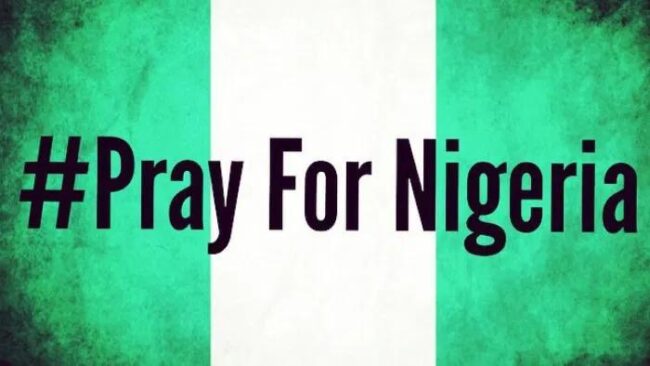
Nigeria is Too Important to Fail

Leaders and organizers of the Africa Impact Forum in February 2020 (Photo credit: Africa Leadership Initiative)
What a year for Black folk! From police brutality in the United States of America (USA) to same in the western region of Africa, White on Black, Black on Black, what a year! One would think that having commemorated 2019 as 400 years after the first Black slaves set foot in what is now the USA the news wouldn’t smell of Black beatings and lynchings and treatment as less than human any longer but here we are. In this season we’ve had the luxury of both time (thanks to COVID-19) and technology to etch these news clips into our consciences and reveal to us not only where we stand but even more deeply, who we are.
On the last day of this year’s Africa Impact Forum (February 26-29) for fellows of the Africa Leadership Initiative, a part of the Aspen Global Leaders Network, my heart was really stirred by Olara Ottunu, Ugandan diplomat, lawyer and politician. He was Uganda’s Permanent Representative to the United Nations from 1980 to 1985 and was the United Nations Under-Secretary-General and Special Representative for Children and Armed Conflict from 1997 to 2005. Olara Ottunu minced no words in the final plenary that there can be no African prosperity without Nigeria and the Democratic Republic of Congo doing well. These ‘big boys’ are the most populous Anglophone and Francophone nations on the 55-state continent of Africa. I have since not looked at Nigeria the same way. Nigeria is too important to fail.
If Black Lives Matter, then the most populous Black country on earth matters immensely. Altogether the over 200 million Nigerian people of 300 tribes matter; individually, each person matters. And by the way, Nigeria will overtake the United States to become the third-most populous country in the world by 2050, surpassing the 300 million people mark, according to a United Nations report. The current seventh most populous country in the world is not only rich in people but also oil and other natural resources. This goes without saying.
Boasting of one of the most vast African Diaspora populations in the world, I have personally had the pleasure of forging deep friendships with Nigerians at medical school in Ghana and as president of International Students Ministries Canada today, delight to see them shine among the top 10 sending countries of international students to Canada. If Africa is the most numerically Christian continent in the world today, it is significantly in part due to Nigeria’s over 90 million strong Christian population.
When Africa’s largest market of 200 million people (twice the size of Ethiopia’s 110 million or Egypt’s 102 million) surpassed South Africa to become the continent’s largest economy as well last year, the business experts had to admit, “Now It’s Too Big for Businesses to Ignore.” Why do you think the United States and United Kingdom have over $55 billion in foreign direct investments in Nigeria, with the Chinese following close after France? Not to mention Italy, India, South Africa, Singapore and Switzerland.
NIGERIA IS WORTH SAVING
When George Floyd was slowly slaughtered before the eyes of a watching world and protests erupted all over the United States and around the world, one of the most profound things I heard was that if Africa had upped her socio-economic game many African-Americans would’ve rather returned ‘home’ than suffer such indignity in the U.S. Even then for some, freedom and dignity matter more than economics, so have responded to overtures from governments like Ghana’s to ‘come home.’ “We want to remind our kin over there that there is a place you can escape to,” said Akwasi Agyeman, chief executive of the Ghana Tourism Authority. “That is Africa.” Now, if I may ask, what is the sense in Blacks escaping police brutality in America, crossing the expansive Atlantic, only to come ‘home’ to the same police brutality, Black on Black?
I am very proud of the display of Youth Power! that has called for #EndSARS and indeed has succeeded in the dissolution (on 11th October, 2020) of the Special Anti-Robbery Squad (SARS) of the Nigeria police which has meted out unspeakable crimes against the citizens of Nigeria. Now some protests are deteriorating into rioting while law enforcement is metamorphosing into death squads firing live ammunition into crowds. As Global CEO of The HuD Group, with HuD Nigeria as one of our strong networks, we demand that elected officials as well as the teeming youth be response-able (responsible) and remember that they hold the dignity and prosperity of the entire Black race in their hands.
All nations matter but not all nations are equally strategic. You would think some of the reasons given above why Nigeria is too important to fail are rather carnal but once upon a time when God Himself wanted to save a certain nation from destruction His reason for sending them a prophet to save them from themselves was pretty intriguing: “And should not I pity Nineveh, that great city, in which there are more than 120,000 persons who do not know their right hand from their left, and also much cattle?” (Jonah 4:11) The numbers of humans matter, the natural resources matter. Nigeria is too big and too important to fail. #PRAY FOR NIGERIA!
Another Ordinary Black Man Downed by a Superior White Policeman: Is there not a root cause?
Mad I am. Have you seen the videos of the broad daylight murder of yet another unarmed Black man, George Floyd, by yet another White police officer, this time in Minneapolis? The officer literally knelt on the poor man’s neck till he died.
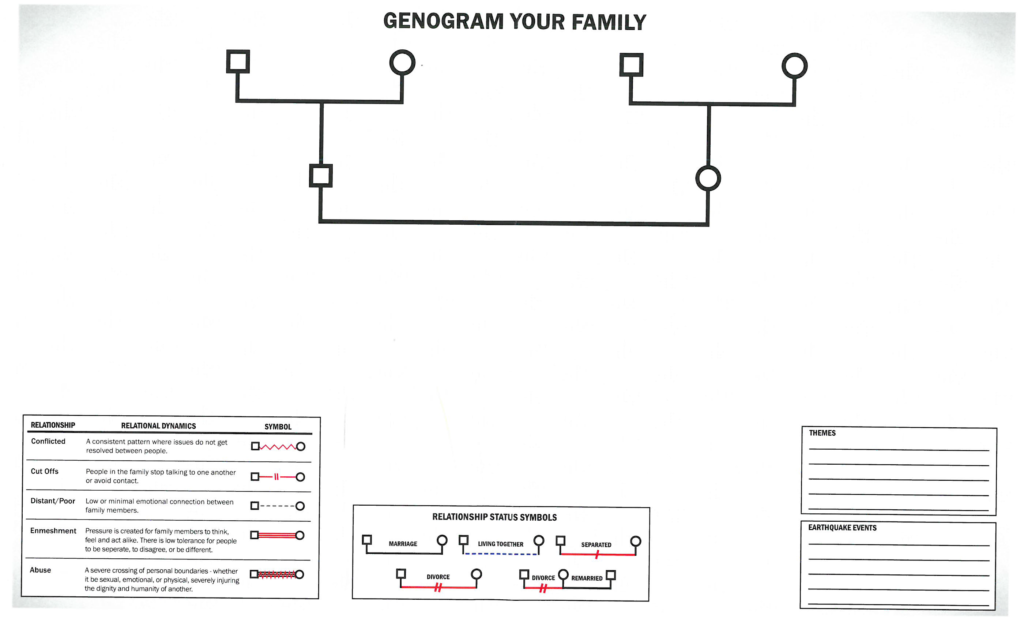
Blank sample to genogram your own family (courtesy: Pete & Geri Scazzero’s Emotionally Healthy Discipleship)
I’m in the middle of a transformative ‘Emotionally Healthy Spirituality’ course with Pete Scazzero (this is at least the third time I’m doing it). Incidentally in the very week we’re focusing on ‘Going Back to Go Forward,’ examining the deep-rooted attitudes, values, behaviours, patterns etc. in our genogram, this dastardly cycle of white police brutality on black lives comes up again; this time George Floyd’s in Minneapolis.
A genogram (pronounced: jen-uh-gram) is “a graphic representation of a family tree that displays detailed data on relationships among individuals. It goes beyond a traditional family tree by allowing the user to analyze hereditary patterns and psychological factors that punctuate relationships.” Biblically, we are affected by the being and doing of our forebears to the third and fourth generation. Meaning, those of us alive right now are exhibiting certain things, good and bad, blessing and cursing, that were sown by our relatives in the 1800s.
The deep rooted nature of this American problem of white-on-black violence leads me to think it is in the white person’s genogram, dating back to the era of colonialism and slavery. A white person (‘master’) unaware of this and put in a place of immense power, like a police officer, inadvertently and uncontrollably mets out brute and fatal force on his black ‘slave.’ It’s in the blood; it’s in the DNA, covertly usually.
Apart from pure demonic activity, this seems to be the only way I can begin to comprehend how a human being can delightfully kneel on the neck on another human and suffocate him to death (#icantbreathe), with hand in pocket and a smirk on his face.
Tell me if I’m going crazy, be honest, even crass, with me, especially if you are white and you call yourself my friend.
If you don’t care, you’re not my friend anyway. If you’re offended, feel free to fume awhile and let’s jaw-jaw when you cool down or unfriend me forever.
“But let justice roll on like a river, righteousness like a never-failing stream!”(Amos 5:24)
POST SCRIPT: MENTOR TO THE RESCUE
I got a response to my Genogram Theory of Systemic Racial Justice above from my Emotionally Healthy Spirituality mentor Pete Scazzero, via SMS, and it was in the affirmative: “…yes the murder of George Floyd is very much the result of that man’s GENOGRAM, the police department’s and the history of the USA.” Thank you sir! BAM!
POST SCRIPT: OF HEART AND BONES
These race issues are deep deep matters. If your kind of Christianity can’t engage this issue and bring a Gospel solution to it, you’ve got the wrong kind; it’s not worth following!
For Christians who want to quickly whisk this issue away with 2 Corinthians 5:17, remember that we are in a process of sanctification after we open our hearts to Jesus for a reason!
Don’t ignore your own genogram. If your great great great grandpa thought my great great great grandpa was a Homo pelli negra don’t take it lightly; it takes a deep work of the Gospel of grace and the Spirit of Truth to see me as a Homo sapiens 200-400 years later. Scazzero says it best: “Jesus may be in your heart, but grandpa is in your bones.”
COVIDic Times: PLAYING GOD.
The time of the prophet Isaiah, in the eighth century BC, was a similar period of turmoil and change in the Near East just as the COVID-19 pandemic has rendered our world today. The people of God had a choice to make between the multitudes of tangible but false gods of the neighbouring states and the unseen but Almighty God of their forebears. We face a similar choice in a similar dispensation. Who/What will we trust in for salvation?

Image of SARS-CoV-2, the novel Coronavirus wrecking havoc in our world today (image credit: Kingston Police)
INTRODUCTION
What a time to be alive! Our ‘Titanic’ has hit an iceberg. The worst pandemic in 100 years! Over half a million infected with COVID-19 in 199 countries and territories; over 25,000 dead. Nations are in lockdown; economies are heading into recession; healthcare systems are bursting at the seams… everything that can be shaken is being shaken!
The time of the prophet Isaiah, in the eighth century BC, was a similar period of turmoil and change in the Near East (Coogan 2016, 253). It wasn’t a viral microorganism stirring up the turmoil; it was a viral kingdom called Assyria! As Coogan puts it, “As the Assyrians moved toward Egypt in their ambition to control the entire Near East, the northern kingdom of Israel, like many other states in the region, was absorbed into the Assyrian empire, and the independence of the southern kingdom of Judah was curtailed severely” (253).
The other thing was that the Near East was rife with idols! Literally thousands of idols have been uncovered by archaeologists throughout the area. And Israel was constantly tempted to put their trust in these tangible but false gods rather than the unseen yet Almighty One. This is the context of the prophet Isaiah.
In the last couple of weeks my church family in Montreal, Westview Bible Church, began a series on “Selections from the Book of Isaiah” under the broad theme “The Glory of God and the Restoration of all things.” Today we continue that, and for the next few weeks… The book of Isaiah’s overall theme receives its clearest purpose statement in chapter 12: “Behold, God is my salvation, I will trust and not be afraid” (Isaiah 12:2). This echoes the meaning of Isaiah’s name, which means the “Yahweh is salvation.”
Today’s message, PLAYING GOD, samples a number of passages in the Second of three parts of Isaiah, chapters 40-55, particularly chapters 40, 42, 44 and 45. My aim is to force us to take a closer look at our tumultuous world today (just like in Isaiah’s day), to see how everything that can be shaken is shaking right now. And to ask ourselves a piercing question: What shakey created thing are we putting ahead of, or even in place of, an unshakeable uncreated God? Who or what has been playing God in your life? How are they doing right now? Isaiah 42:6-22 will be our anchor text; but we’ll go back and forth in the Isaiah 40’s. Let’s go!
OUTLINE
Playing God. There’s a sense in which we play God because we are made in His image and likeness and have the power to create, both hard ‘stuff’ and soft stuff like ideologies. But as Andy Crouch puts it so well, “Idolatry is the biblical name for the human capacity for creative power run amok” (Crouch 2013, 55). We then create stuff that now want to play God in our lives. We make idols and then they shape us!
We’ll examining this message in four parts (4C’s):
-
- Characterization | characterization of idolatry (Isaiah 44:1,2, 6-7, 9)
- Claims | claims of the gods (Isaiah 44:1,2, 6-17)
- Consequences | consequences of idolatry (Isaiah 44:10, 11, 18-20)
- Call, your call. (Isaiah 44:19-22)
1. CHARACTERIZATION | of Idolatry (44:1, 2, 6-7, 9)
Right from the beginning of Second Isaiah onwards (chapter 40 forwards) there is a series of verses targeting idols and idolatry, especially chapters 40 to 48. Introduction is right there in chapter 40:18
18 With whom, then, will you compare God? To what image will you liken him? 19 As for an idol, a metalworker casts it, and a goldsmith overlays it with gold and fashions silver chains for it. 20 A person too poor to present such an offering selects wood that will not rot; they look for a skilled worker to set up an idol that will not topple.
Images in the ancient Near East were either cast (i.e. metal) or carved (out of wood). An idol is a cultural construct, hard or soft, that we treasure and that embodies a false claim about our ultimate source, sustenance and sense of identity and meaning. “The word ultimate is crucial …” (Crouch) because various things are our source( eg. the sun for light) and sustain us (eg. economy or science) and give a sense of meaning (like family) but none of them should ever be considered ULTIMATE! Then they become a god; a false god.
It is reported that someone said of the Titanic: “Even God cannot sink this ship!” That is the problem with idolatry. Crouch says Crouch, “an idol is a special kind of human creation, one that is not just mistaken in a superficial way. Rather, it advances a claim about the ultimate nature of reality that is ultimately mistaken. And since the Creator God is the ultimate meaning of the world, an idol is a representation of a false god. Implicitly or explicitly, all idols represent a challenge and counterclaim to the identity and character of the true Creator God.”
First of all, who are the PLAYERS in this ‘game of thrones’:
- Yahweh: “Israel’s King and Redeemer, the Lord Almighty” (vs. 6)
- If you back track to the beginning of the chapter (vs. 2), “This is what the LORD says…”
- Yahweh’s people: they are the ones he’s mainly speaking to in this passage
- Backtrack to beginning of chapter (vs. 1): “But now listen, Jacob, my servant, Israel,
- Repeats “Jacob, my servant” in the last part of verse 2 and adds a nickname for them “Jeshurun.” This was “an endearing name for Israel—see Deut 32:15; 33:5, 26” (Walton et al 2000, 628).
- Verse 7 talks about “what has happened since I established my ancient people“
- In vs. 8b, “you are my witnesses“
- Idol makers/Craftsmen: “All who make idols…” (vs. 9a)
- Idols: “…and the things they treasure…” (vs. 9b)
2. CLAIMS | of the gods (44:1, 2, 6-17)
GAME ON!!! Idols’ claim versus Yahweh’s claim. Both Yahweh and idols want to claim us; but only God is able to articulate and justify his claim in the Scripture! In fact, an idol can make no claim, except what we’ve attributed to it. God wants to play His role as God in our lives; but idols also want to play God. I’ll just compare the claims in terms of CHOICE, CREATION, CLASS, CONFESSION of these four players.
A. Choice | The One Who Has First Choice alone is worthy of first place!
- YAHWEH: He chooses first because he comes before all things!
- “But now listen, Jacob, my servant, Israel, whom I have chosen.” (vs. 1)
- “Do not be afraid Jacob, my servant, Jeshurun, whom I have chosen.” (vs. 2)
- PEOPLE & IDOL MAKERS: They go choose a what deity, design and material in nature.
- “A person too poor to present such an offering selects wood that will not rot; they look for a skilled worker to set up an idol that will not topple.” (Is. 40:20)
- IDOL: Cannot choose anything or anyone.
B. Creation | The One Who Creates alone is worthy of worship!
- YAHWEH: “This is what the Lord says—he who made you, who formed you in the womb, and who will help you…” (vs.2). “I have made you, you are my servant” (vs. 21) 18 For this is what the Lord says—he who created the heavens, he is God; he who fashioned and made the earth, he founded it; he did not create it to be empty, but formed it to be inhabited…” (Isaiah 45:18)
- PEOPLE & IDOL MAKERS: “Who shapes a god and casts an idol,which can profit nothing?” (vs.10) “People who do that will be put to shame; such craftsmen are only human beings.” (v.11)
- 12The blacksmith takes a tooland works with it in the coals; he shapes an idol with hammers, he forges it with the might of his arm. He gets hungry and loses his strength; he drinks no water and grows faint. 13 The carpenter measures with a line and makes an outline with a marker; he roughs it out with chisels and marks it with compasses. He shapes it in human form, human form in all its glory, that it may dwell in a shrine. 14 He cut down cedars, or perhaps took a cypress or oak. He let it grow among the trees of the forest, or planted a pine, and the rain made it grow.15 It is used as fuel for burning; some of it he takes and warms himself, he kindles a fire and bakes bread. But he also fashions a god and worships it; he makes an idol and bows down to it. (vs. 12-15)
- IDOL: Is created/shaped! “Who shapes a god and casts an idol, which can profit nothing?” (vs. 10)
C. Class | God is in a class of His own; all by Himself. He is worthy of our exaltation.
- YAHWEH: “This is what the Lordsays—Israel’s King and Redeemer, the Lord Almighty: I am the first and I am the last; apart from me there is no God. Is there any God besides me? No, there is no other Rock; I know not one” (vs. 6) In Isaiah 45: 18 God says: “I am the Lord, and there is no other.”
- PEOPLE: “Those who would speak up for them are blind; they are ignorant, to their own shame” (vs. 9c).
- IDOL MAKERS: “All who make idols are nothing…” (vs. 9a)
- IDOLS: “…and the things they treasure are worthless.” (vs. 9b)
- 16 Half of the wood he burns in the fire; over it he prepares his meal, he roasts his meat and eats his fill. He also warms himself and says,“Ah! I am warm; I see the fire.” 17 From the rest he makes a god, his idol; he bows down to it and worships. He prays to it and says, “Save me! You are my god!” (vs. 16-17)
D. Confession | The One Who Can Speak for Himself (not spoken for) is to be heeded.
- YAHWEH: Who then is like me? Let him proclaim Let him declare and lay out before me what has happened [past] since I established my ancient people, and what is yet to come—yes, let them foretell what will come [future].” (vs. 7) “Do not tremble, do not be afraid. Did I not proclaim this and foretell it long ago? You are my witnesses.” (vs. 8) “I have not spoken in secret, from somewhere in a land of darkness;I have not said to Jacob’s descendants, ‘Seek me in vain.’ I, the Lord, speak the truth; I declare what is right.” (Isaiah 45:19)
- PEOPLE: Nothing to say.
- IDOL MAKERS: Nothing to say.
- IDOLS: Say nothing. They do not because they cannot.
3. CONSEQUENCES | of Idolatry (44:10, 11, 18-20)
When it comes to idolatry, it’s a lost game. Heads, you lose; tails you lose.
- A. Lose Time & Money: Who shapes a god and casts an idol, which can profit nothing? (vs. 10)
- B. Lose Honour/Face: “People who do that will be put to shame; … Let them all come together and take their stand; they will be brought down to … shame“ (vs. 11). But those who trust in idols, who say to images, ‘You are our gods,’ will be turned back in utter shame. (Isaiah 42:17) “All the makers of idols will be put to shame and disgraced; they will go off into disgrace But Israel will be saved by the Lord with an everlasting salvation; you will never be put to shame or disgraced, to ages everlasting.” (Isaiah 45:16-17)
- Nana Bea story of idol in rain; beaten to pulp
- C. Lose Calm: “… they will be brought down to terror ….” (vs.11). Terror.
- D. Lose Sense/Smartness:“They know nothing, they understand nothing; their eyes are plastered over so they cannot see… No one stops to think, no one has the knowledge or understanding to say, “Half of it I used for fuel; I even baked bread over its coals, I roasted meat and I ate. Shall I make a detestable thing from what is left? Shall I bow down to a block of wood?” Such a person feeds on ashes; a deluded heart misleads him; he cannot save himself, or say, “Is not this thing in my right hand a lie?” (Isaiah 44:18-20)
- We’re not even able to record at church anymore, hence this message is from my home office—which incidentally used to be a shrine for a number of idols. When we came to see this home in Pierrefonds to purchase it a little over seven years ago, this room was full of idols! Think about it, the former occupants of this house had to pack up what they worship in boxes and send them to their next house. How can something you can pack up and carry, carry you?! We lose our smarts!
- E. Lose Self (GOD IMAGE): BECOME LIKE THEM! Blind, deaf, dumb; heartless… “Those who make them will be like them, and so will all who trust in them.” (Psalm 115:8). You become who/what you worship.
Bottomline, you loose all. I like how Andy Crouch puts it: “All idols begin by offering great things for a very small price. All idols then fail, more and more consistently, to deliver on their original promises, while ratcheting up their demands, which initially seem so reasonable, for worship and sacrifice. In the end they fail completely, even as they make categorical demands. …idols ask for more and more, while giving less and less, until eventually they demand everything and give nothing” (56).
4. CALL | your call (44:19-22)
Today, God is calling us to Reflect, Remember, Repent and Return.
A. REFLECT (stop to think): “No one stops to think, no one has the knowledge or understanding to say, “Half of it I used for fuel; I even baked bread over its coals, I roasted meat and I ate. Shall I make a detestable thing from what is left? Shall I bow down to a block of wood?” 20 Such a person feeds on ashes; a deluded heart misleads him; he cannot save himself, or say, “Is not this thing in my right hand a lie?” (vs. 19-20)
-
- Reflect (take stock) of what you A-D-O-R-E
- Who/What you ADORE –> affections
- gods out of celebrities (catching the virus); Sports (NBA has ceased; Olympics postponed)
- Who/What you DEPEND ON –> addictions
- gods out of our sexuality; gods out of science & technology; AI’s coming!
- Who/What you OBEY –> directions
- gods out of our autonomy, our intellect! Our appetites. “The god is their stomach”
- Who/What you spend significant RESOURCES on –> investments of time and money.
- gods out of business; our economies; our healthcare system
- Who/What you Elevate –> promotions
- gods out of human rights—“We’ve elevated our rights above the one who makes us righteous” (Ron Kenoly).
- All these things, are good servants but terrible masters!
- Who/What you ADORE –> affections
- Reflect (take stock) of what you A-D-O-R-E
B. REMEMBER: “Remember these things, Jacob, for you, Israel, are my servant. I have made you, you are my servant; Israel, I will not forget you.” (vs. 21)
C. REPENT: “I have swept away your offenses like a cloud, your sins like the morning mist.” (vs.22a)
D. RETURN: “Return to me, for I have redeemed you.” (vs. 22b)
CONCLUSION
GOD DOESN’T PLAY. HE IS GOD. He is either NUMBER ONE or NUMBER ONE! He won’t take second place. “I am the Lord; that is my name! I will not yield my glory to another or my praise to idols.” (Isaiah 42:8)
IF you have an idol in your life, it is your full responsibility because you have ceded your power of creation and choice as a person made in the image of God with the ability to ‘play God’ to someone or something, hard or soft, to rather play God in your life.
We’re so nothing—but you know what’s worse—the things we create to PLAY GOD in our lives. Everything that is created—primary (i.e. created by God) or secondary (created by man from what has already been created by God)—can be shaken.
Let me ask you again: What shakey created thing—created by God or man—are you putting ahead of, or even in place of, an unshakeable uncreated God? Crouch says, “Like the serpent in the Garden, they all [i.e. all idols] raise the question of the Creator God’s truthfulness and goodness, subtly or directly suggesting that the Creator God is neither true nor good” (56).
But in times of crisis like now I hope you see how no one and no thing can save you but Yahweh! “Behold, God is my salvation, I will trust and not be afraid” (Isaiah 12:2). All else you cannot trust for salvation; and you ought to be afraid! NOTHING WE MAKE OF OURSELVES OR MAKE OURSELVES CAN ULTIMATELY SAVE US! Do you want to be safe and saved? Come to Yahweh!
References
Coogan, Michael D. 2016. A Brief Introduction to the Old Testament. The Hebrew Bible in its Context. New York, NY: Oxford University Press.
Crouch, Andy. 2013. Playing God: Redeeming the Gift of Power. Downers Grove, IL: InterVarsity Press.
Holy Bible, New International Version®, NIV® Copyright ©1973, 1978, 1984, 2011 by Biblica, Inc.® Used by permission. All rights reserved worldwide.
Walton John H., Victor H. Matthews and Mark W. Chavalas. The IVP Bible Background Commentary. Old Testament. Downers Grove, IL: InterVarsity Press.
__________
This was preached as a Sunday morning online service of Westview Bible Church on March 29, 2020. Video version available here.



